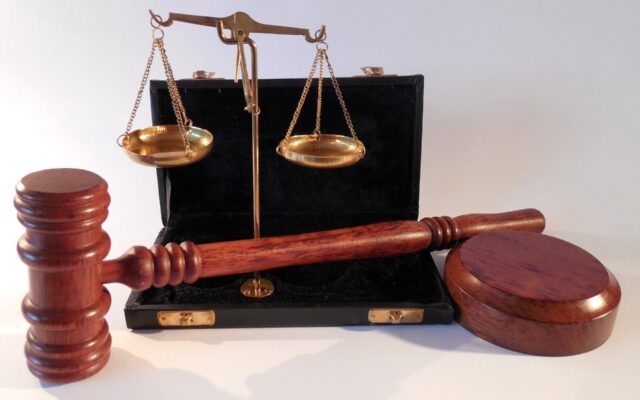
Combating the deterioration of law
by Grace Goodwin
Junior
Brewer High School
Second Place
Penobscot County Bar Association Essay and Art Contest
“No State shall make or enforce any law which shall abridge the privileges or immunities of citizens of the United States; … nor deny to any person within its jurisdiction the equal protection of the laws.” History has witnessed millions of Americans fight to pursue equal protection of the fifteenth amendment, their right to vote. In the 1920’s, suffragettes called for this right, as did civil rights advocates in the 1960’s. Certainly the work of these activists has not been in vain; the rights of countless Americans have been advanced. However, questions still remain: Are all Americans treated equally under the law? Has the fourteenth amendment been successful in its endeavor of equal protection for all? The answer is a clear no.
In the summer of 2020, every American state saw protests against police brutality after the death of George Floyd, a black man arrested and pinned to the ground over an alleged counterfeit bill. Protesters demanded to know why an arrest for a non-violent crime resulted in such a violent take down. Funhem1orc, protesters began digging into statistics on crime demographics. They found that black Americans committed 52.4 percent of homicides, despite making up 13.4 percent of the total population. One theory for this disparity is that black individuals are more violent by nature, but no scientific evidence supports this. The second explanation is that due to subconscious racism, black individuals are more likely to be suspected and found guilty of homicides. Law enforcement and court systems. intentionally or not, are not treating black individuals as though they are equally protected by the law. Further evidence of this unequal treatment can be demonstrated in the case U.S. versus Booker in 2005. Attorneys debated, “Does an enhanced sentence at a judge’s discretion violate the sixth amendment?” The majority ruled no, a judge can decide to sentence a convict to a higher punishment based on the facts of the case and it will not be considered cruel and/or unusual punishment. This conclusion effectively overturned the Sentencing Reform Act of 1984, which was implemented to promote fairness in criminal sentencing. This decision made the mandatory sentencing rules established in the SRA advisory. The Department of Justice predicted that this decision would increase the disparity in sentencing based on race due to the sentencing party’s subconscious bias. This overturning of policies promoting equality is known as backsliding by the United Nations, and is common in current political climates all over the world, supporting the claim that current world events contribute to the deterioration of law.
So, if it can be determined that America does not treat everyone equally under the law, can it also be determined whether America treats certain individuals as though they are above the law? Take the two impeachment trials of Donald Trump. In the first, the President was acquitted on his charges of abuse of power and obstruction of Congress. Senator Susan Collins stated the following on her decision to acquit the President: “I do not believe the House has met its burden of showing that the president’s conduct, however flawed, warrants the extreme step of immediate removal from office.” Many senators who voted to acquit echoed this sentiment, claiming that due to the President’s position, the only punishment, removal from office, was too severe for the charges, regardless of whether the President had actually committed these infractions. He was impeached and acquitted a second time, this time on charges of incitement of insurrection, with those who voted not guilty claiming it was unconstitutional for a former President to face an impeachment trial. In both cases, due to his position. he was immune from the punishment his actions would have invoked had he been anyone else. It would be inappropriate to compare these impeachment trials to a standard criminal trial, but I am forced to point out that the President was treated if not above the law, then above repercussions due to his position.
So what? When striving for a country in which all are treated equally, and everyone is held accountable, what can we do? I would reimplement the SRA, recommend programs to address subconscious bias in law enforcement, or introduce an amendment to clarify processes of impeaching a President, but I am not a legislator. I’m not hopeless either. Societal change addressing inequalities in the justice system requires new polices, advocacy, education. and participation from everyone seeking improvement, so I end this statement with a call to action: Do what you can.